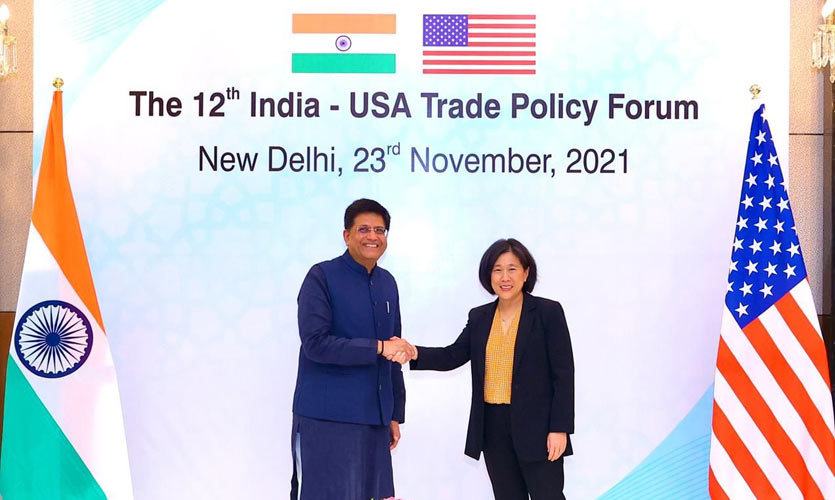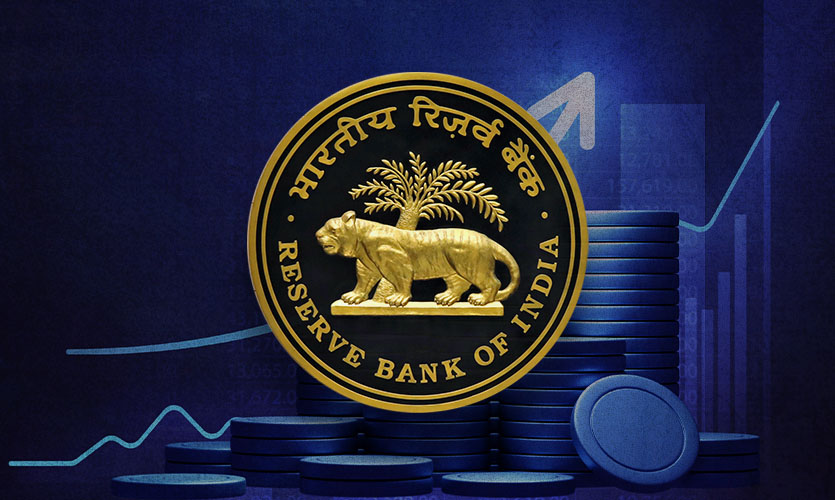At the primary Trade Policy Forum assembly on November 23 in New Delhi, India’s Commerce and Business Minister Piyush Goyal and US Trade Representative Katherine Tai discussed improving the trust deficit over India-US trade. The US has accepted to ease guidelines on the export of mangoes and pomegranates. In return, India will permit cargo of American cherries and alfalfa hay. The new deal establishes a clear message to the world that the two countries are eager to remove barriers on the trade front to ensure better bilateral ties.
The assembly that took place after four years saw Goyal and Tai acknowledge 40 key points for time-certain discussion, where 22 were brought up by India’s and 18 by America. These included discussions on swifter shipments for Indian shrimp, desk grapes and American pork instead of the current complex system of high-quality and requirement checks. For India, testing norms on dussehri and langda mangoes have made it difficult for these products to reach American retail shelves, however, these latest developments suggest that India’s oversight mechanism could be accepted. “The clear message was that the relationship should not be transactional but should be based on trust and understanding,” mentioned a senior official.
Over the past years, the two democracies have quarrelled over these issues, particularly on tariffs that hampered the progress of concluding a bilateral trade package. In 2019, the Trump administration had terminated India’s access to nearly $5.6 billion of annual exports amid disputes over digital trade and other issues. The two countries’ trade ministers also discussed the possibility of restoring India’s trade benefits and offering a preferential entry for Indian items under the US Generalized System of Preferences (GSP) after respective laws are put in place by the US Congress. For other developing countries to receive GSP trade benefits, the Congress would have to reinstate the program, which will include new restrictions and conditions on labour and environmental issues. The move intends to improve the financial relationship to a subsequent degree, extend strategic ties under the Quad, and diversify manufacturing bases to reduce dependence on China.
A joint statement was issued after Tai’s two-day visit to New Delhi came to an end. “The Ministers expressed an intent to continue to work together on resolving outstanding trade issues as some of these require additional engagement in order to reach convergence in the near future,” read the statement by Tai and Goyal. The statement highlighted that bilateral goods’ trade between the two countries in the first nine months this year rose by nearly 50 percent from a year earlier as the economies reopened after the pandemic, and is set to surpass $100 billion before the end of this year. “The ministers acknowledged the significance of creating resilient and secure supply chains. In this context, they agreed that India and the US could, together with like-minded partners, take a leading role in developing secure supply chains in critical sectors of trade and technology,” the statement further mentioned.
Read more: India-UAE Trade Pact To Reach $100 Billion Under The CEPA
The assembly trade outcomes came right after Prime Minister Narendra Modi’s meeting with US President Joe Biden in Washington this September when both leaders agreed to expand trade ties to strengthen relations. The trade ministers further discussed US interest in supplying ethanol to India and speeding up phytosanitary work to allow more agricultural imports. Additionally, there was “regular sharing of perspectives on issues, including cyberspace, semiconductors, AI, 5G, 6G and future generation telecommunications technology”, points on which there’s a basic discomfort with Chinese corporations.
India and the US hope to improve relations on items associated with well-being, in addition to providers, with the acknowledgement of India’s considerations over delay in US regulatory inspection of Indian pharma amenities. Price caps on medical gadgets corresponding to stents appeared to have been handled positively as the US has “acknowledged the work being done by the Indian side to strike a balance between access to medical devices at affordable rates and the availability of cutting edge medical technology”. India had previously cited that applied tariffs were way below the permissible limit under the WTO rules when the US had demanded lower tariffs while seeking more exports of goods and services.










